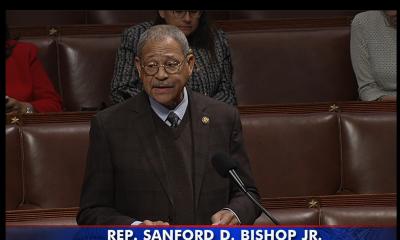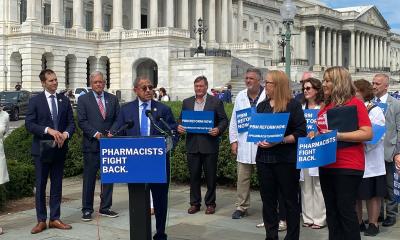Healthcare
One of Congressman Bishop’s top priorities has been for the United States healthcare system to emerge from the recent COVID-19 pandemic not only stronger than it was in the past but more prepared for the future as well.
Congressman Bishop led the fight at the outbreak of the pandemic to give the Food and Drug Administration the tools it needs to quickly approve safe and effective vaccines and treatment options for COVID-19. He also worked to ensure that the COVID-19 vaccines reached the most rural areas of Georgia and the entire nation.
As a senior member of the U.S. House Appropriations Committee, Congressman Bishop strongly believes that we need to invest in improving telehealth and broadband connectivity in rural and underserved areas so that a doctor will only be a mouse-click away in an emergency.
He supports improving the incentives for doctors and other health professionals to serve some if not all their career in rural and underserved communities. Some of these incentives, for example, include student loan forgiveness. He also supports efforts to expand recruitment and training for health professionals closer to and in the communities they will serve.
He has advocated for increased funding for the National Institutes of Health for medical research, and for the Centers for Disease Control and Prevention to build up a public health infrastructure to predict and prevent future pandemics.
Congressman Bishop has supported efforts in the COVID-19 relief packages to make health care more affordable, especially by expanding the tax credits under the Affordable Care Act to help people purchase health insurance.
In 2022, he supported legislation to cap the price of insulin for Medicare recipients at no more than $35 per month; protect millions of Americans from surprise medical bills; empower Medicare to negotiate prices of certain costly medications administered in doctors’ offices or purchased at the pharmacy; and provide free vaccines for seniors.
Finally, Congressman Bishop authored legislation, which was enacted into law in 2020, to strengthen non-emergency medical transportation through Medicaid, which is especially important for people with end stage renal disease to get to and from their doctor.

